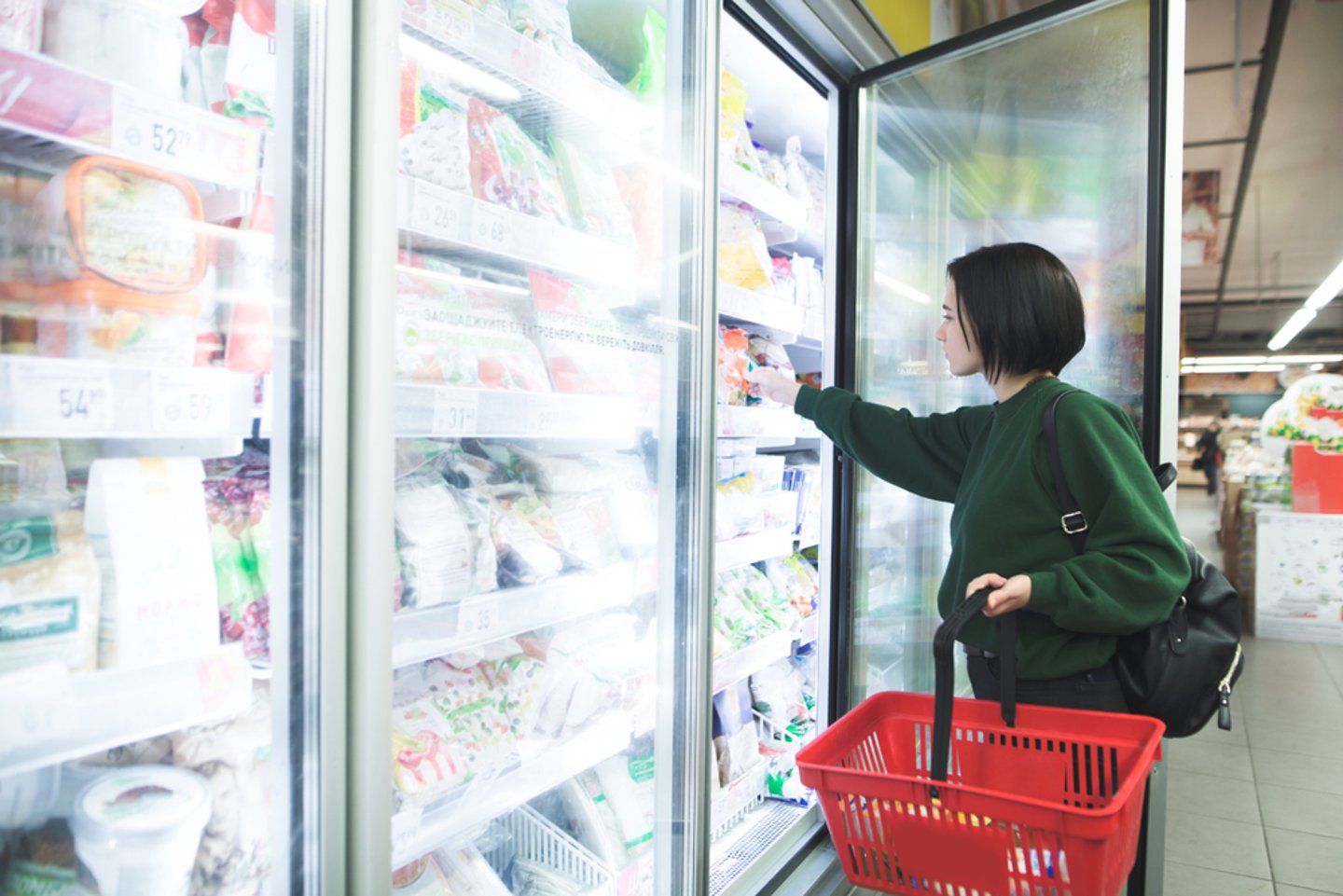Frozen Foods Report: Frozen Stays Hot
Frozen food is expected to keep growing over the next 12 months, a continuation of a trend that started during the pandemic as more consumers turned to the category for solutions to meet their daily meal needs.
Products across the many segments that comprise frozen food are seeing sales gains for a variety of reasons. For some, shoppers looking to eat healthier are seeking frozen selections of fruits, vegetables and seafood. For others, convenience is key and items such as frozen pizza and meal solutions are also seeing a boost in sales.
According to a recent report from Bonafide Research, frozen fruits, vegetables, meats and frozen meals are expected to grow at a compound annual growth rate (CAGR) of 4.76%, with the category reaching a value of $296.55 billion by 2027. Bonafide Research cited decreased grocery visits, and thus a need for longer lasting food, at the beginning of the pandemic as a reason for many consumers’ switch to frozen foods. The category’s growth was later impacted by high prices in the produce aisle and fear of food shortages, causing consumers to stock up on their frozen favorites.
Frozen potatoes and meat & poultry make up roughly 55% of the frozen food market share, as customers search for hearty options in the frozen aisle, increasingly from private brands, as 2022 was a record year for store branded food and beverage items. An up-and-coming segment of frozen, plant-based, is expected to register the fastest growth rate of around 11% during the forecast period, according to Bonafide Research.
“We expect continued growth [in 2023] in plant-based products and in consumers’ plant-forward diets,” said Julie Henderson, vice president of Communications at the National Frozen & Refrigerated Foods Association (NFRA), a trade group made up of retailers, suppliers, distributors and more who work in the frozen and refrigerated food categories. “Plant-based products don’t make up a large percentage of frozen department sales in most categories, but they are a driver of growth. Plant-based products showed up across the frozen food department, even in indulgent categories like ice cream.”
Experts said plant-based products and better-for-you, clean label products are on the rise, along with frozen fruits and vegetables, showing that consumers are looking to the freezer aisle for healthy meals and cooking ingredients. According to IRI data, frozen fruit and vegetable sales for the 52-week period ended Jan. 1, 2023, were $7.6 billion, a 8.9% dollar sales increase compared to 2021. In the last quarter of 2022, dollar sales increased 15.6%.
“The ready meal and frozen vegetables segments are expected to see significant growth, and the retail and online distribution channels are expected to hold the largest share of the market,” research firm Astute Analytica noted in a recent frozen food report. “Companies operating in the frozen food industry in North America should focus on meeting the evolving needs of consumers and capitalizing on the growing trend of online grocery shopping to stay competitive.”
Astute Analytica also reported that sales of familiar frozen food segments such as pizza, appetizers and desserts are growing at a faster pace than the overall market, signaling the ongoing shift of consumers seeking convenient options in the category. Astute also found that the frozen food aisle is becoming increasingly competitive, with private label brands gaining share.
“We are living in a culture where people are not eating the typical three meals a day, so snacks and meals may be interchangeable and many types of products can fit the small plate trend,” said Henderson. “Particularly the breakfast category has seen manufacturers focus on portable and grab-and-go options.”
Inflation continues to impact the grocery sector despite some recent signs of cooling. According to IRI’s Inflation Tracker, most food categories have remained within the same price range from November of last year to the first several weeks of January. With inflation remaining high,
including in the freezer aisle, Henderson said that strong growth potential is expected to continue, giving retailers more of an opportunity to leverage their private brands.
“During inflationary times, we know eating away from home is curtailed,” she said. “This creates an opportunity to drive consumers to frozen.”
Examples of retailers adding new private label products to the freezer aisle in 2022 include United Natural Foods, Inc. (UNFI) expanding its Woodstock brand with six new organic pasta items, and Albertsons Companies relaunching its Waterfront Bistro line of frozen seafood.
In September of last year, two of the four winning companies in Wakefern’s Own Brands Supplier Innovation Summit offered products in the frozen category. GlutenLibre was founded by two bakers who met in manufacturing 15 years ago, and the company offers certified gluten-free and vegan plant-based frozen dumplings. It uses only all-natural ingredients with no artificial flavors or colors, preservatives, nitrates, hormones or antibiotics.
Another winner, The Perfect Bite Company, offers a “fresh take on frozen,” and has built its business by offering a foundation of foods including breakfast, single-serve meals, bowls and value-added vegetables and grains.
“Private brands have definitely benefited from the recent past and current environment,” said Henderson. “The combination of economic downturn, pandemic response and supply chain issues forced consumers to private brands. That experience created increased trust and quality perceptions for private brand products.”





